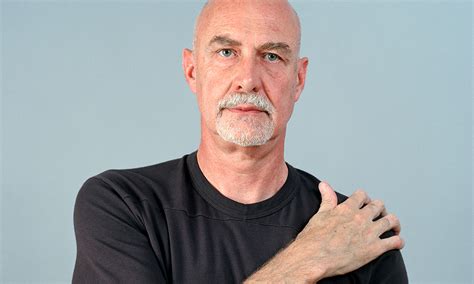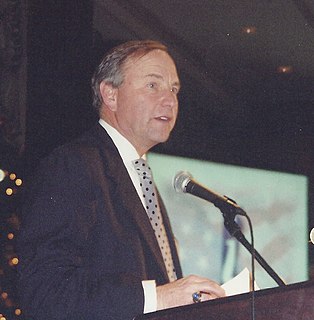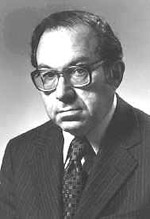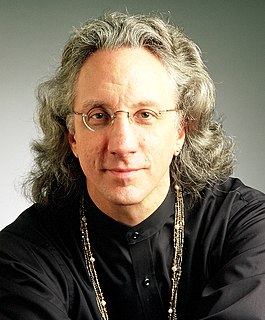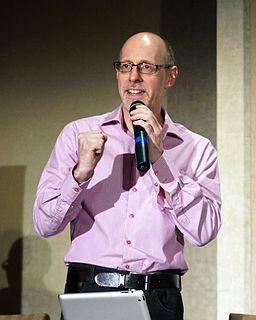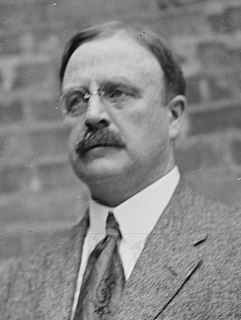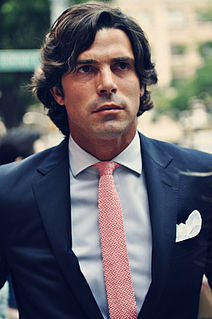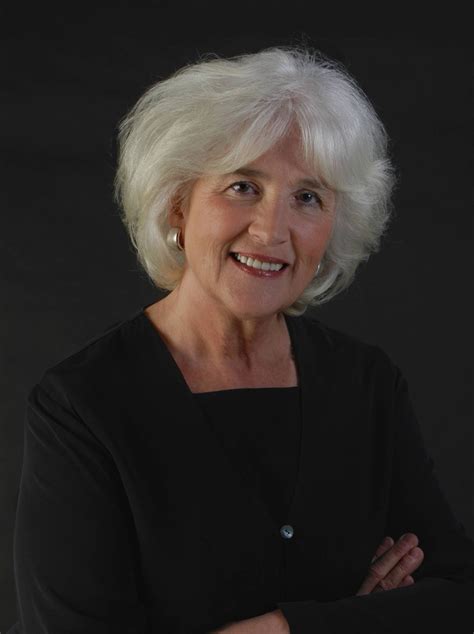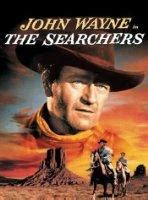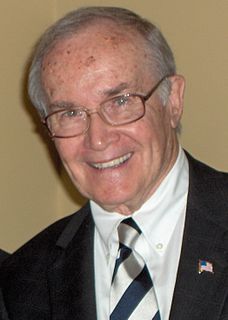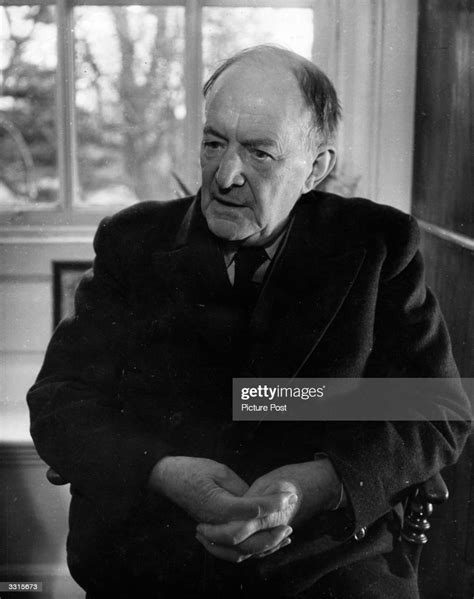Top 1200 Newspapers Quotes & Sayings - Page 20
Explore popular Newspapers quotes.
Last updated on November 21, 2024.
To an ever greater extent out experience is governed by pictures, pictures in newspapers and magazines, on television and in the cinema. Next to these pictures firsthand experience begins to retreat, to seem more and more trivial. While it once seemed that pictures had the function of interpreting reality, it now seems they have usurped it. It therefore becomes imperative to understand the picture itself, not in order to uncover a lost reality, but to determine how a picture becomes a signifying structure of its own accord.
Emmett Till and I were about the same age. A week after he was murdered... I stood on a corner with a gang of boys, looking at pictures of him in the black newspapers and magazines. In one, he was laughing and happy. In the other, his head was swollen and bashed in, his eyes bulging out of their sockets, and his mouth twisted and broken... I couldn't get Emmett Till out of my mind, until one evening I thought of a way to get back at white people for his death.
It is easy to criticize and find fault with the conduct of kings, and write furious articles against them in newspapers, or make violent speeches about them on platforms. Any fool can rip and rend a costly garment, but not every man can cut out and make one. To expect perfection in kings, prime ministers, or rulers of any king, is senseless and unreasonable. We would exhibit more wisdom if we prayed for them more, and criticized less.
Darwin was one of our finest specimens. He did superbly what human beings are designed to do: manipulate social information to personal advantage. The information in question was the prevailing account of how human beings, and all organisms, came to exist; Darwin reshaped it in a way that radically raised his social status. When he died in 1882, his greatness was acclaimed in newspapers around the world, and he was buried in Westminster Abbey, not far from the body of Isaac Newton. Alpha-male territory.
Churchmen are quick to defend religious freedom; lawyers were never so universally aroused as by President Roosevelt's Court bill; newspapers are most alert to civil liberties when there is a hint of press censorship in the air. And educators become perturbed at every effort to curb academic freedom. But too seldom do all of these become militant when ostensibly the rights of only one group are threatened. They do not always react to the truism that when the rights of any individual or group are chipped away, the freedom of all erodes.
I own no TV stations, or Radio Stations or Newspapers. But I feel that people need to be educated as to what is going on, and to understand the connection between the news media and the instruments of repression in Amerika. All I have is my voice, my spirit and the will to tell the truth. But I sincerely ask, those of you in the Black media, those of you in the progressive media, those of you who believe in true freedom, to publish this statement and to let people know what is happening. We have no voice, so you must be the voice of the voiceless.
Tayyip Erdogan wants to go beyond George W. Bush by making critical journalism and critics in the academy illegal. What will be the difference between him and a military government? Very little. I read his remarks on the effectiveness of Adolf Hitler as Chancellor of Germany. Well, yes. But then the AKP would have to ban all other political parties, close down all critical newspapers, burn the books critical of the regime and gas the Kurds to death...the final solution of the Kurdish 'problem.' Somehow I don't think he is about to do that.
The left's obsession with corporations as a spawn of evil is pathological paranoia. A corporation is just one form of organizing a private business enterprise for purposes of limiting personal liability, issuing stock, filing financial reports and paying taxes. Other forms include partnerships and sole proprietorships. Are they less evil? You buy your groceries from corporations, your cars, newspapers, cellphones, clothing and exercise equipment. Your parents and children work for corporations. Are they evil?
My Big Mama is my No. 1 financial role model. Much of my advice stems from what she taught me. She never made more than $13,000 a year, yet she paid off her home before she retired. She saved money from every paycheck. She taught me to be skeptical. It makes me cry to think that I'm a nationally syndicated personal finance columnist for one of the world's best newspapers and my core advice comes from my black grandmother who was a nurse's aide with just a high school education.
The first victim in journalism today is proximity. I know I've used that word a lot. Because of foreign budgets, newspapers have consolidated, and journalists now cover dozens of countries at a time. It is physically not possible for one person to understand and live the unique sets of experiences in all these places in honest and meaningful ways. Outlets used to send journalists to places like Congo for months at a time, and they were stationed there for months or years. There was a sense of immersive reporting, and that has been a casualty of the shift in news over the past years.
Consider children as a beat. Clearly not an institution of power, children don't vote and they don't pass taxes. They have no money, and they don't buy newspapers or watch the news on television. Consequently, children are one of the most neglected segments of society in the news, except as a subtopic of other power beats such as education, family, and crime. Children are in serious trouble in this society, which means the foundation of our society is in trouble, which means the future is in trouble, and that is news.
My dad grew up with straight-up no running water. He slept in a twin bed with his two sisters and his mom, like 'Charlie And The Chocolate Factory' style: like, feet at the head, feet at the head alternating. And then I think his dad slept on, like, a bed of newspapers on a floor in their apartment.
The Washington Post is and has been the greatest historic competitor of the New York Times. Half of me, though, the unselfish part of me that is just a journalist, is thrilled. I want newspapers to succeed. Let's take the Guardian, which is a new competitor in the digital age. Does it make me nervous that they compete with us and in fact beat us on the Snowden story? Yes. The part of me that's a competitive journalist and wants to fight and play says: bring them on! It's more fun that way.
As the Nazi regime developed over the years, the whole structure of decision-making was changed. At first there were laws. Then there were decrees implementing laws. Then a law was made saying, ‘There shall be no laws.’ Then there were orders and directives that were written down, but still published in ministerial gazettes. Then there was government by announcement; orders appeared in newspapers. Then there were the quiet orders, the orders that were not published, that were within the bureaucracy, that were oral. And finally, there were no orders at all. Everybody knew what he had to do.
As far as the media is concerned, they ought to hate me. Before I came along, they had a monopoly. Before I came along, nationally all there was, was the three networks, the big newspapers, and CNN. When I started in '88, that was it. And now look. That monopoly they had is gone. Now there is Fox News, from 1996. That was nine years after I started. You got all kinds of conservative talk radio out there now. And that's done nothing but grow. I have not lost a single listener because of all the other shows. We've grown the pie, so to speak.
With the communication internet, whole industries have been disrupted. You're in the publishing industry, you understand that. Before, we had newspapers, magazines - now you're on the web. I'm in book publishing. I don't have to tell you what's happened to us. Television has taken a hit. The music industry. But, thousands of new businesses have emerged on this new communication revolution platform. Not just Google, Facebook, and Twitter. There are thousands of operations. Businesses that are doing the platforms, the apps. They're mining the big data. They're creating the connections.
Some people think that evolutionary psychology claims to have discovered that human nature is selfish and wicked. But they are flattering the researchers and anyone who would claim to have discovered the opposite. No one needs a scientist to measure whether humans are prone to knavery. The question has been answered in the history books, the newspapers, the ethnographic record, and the letters to Ann Landers. But people treat it like an open question, as if someday science might discover that it's all a bad dream and we will wake up to find that it is human nature to love one another.
It's immoral to parent irresponsibly... And it doesn't help matters any when prime time tv, like "Murphy Brown", a character who is supposed to represent a successful career woman of today, mocks the importance of the father by bearing a child alone, and calling it just another "lifestyle choice." Marriage is probably the best anti-poverty program there is... Even though our cultural leaders in Hollywood, network TV, the national newspapers routinely jeer at [such values] I think most of us in this room know that some things are good, and other things are wrong.
People who think achieving success is a linear A-to-Z process, a straight shot to the top, simply aren't in touch with reality. There are very few bona fide overnight success stories. It just doesn't work that way. Success appears to happen overnight because we all see stories in newspapers and on TV about previously unknown people who have suddenly become famous. But consider a sequoia tree that has been growing for several hundred years. Just because a television crew one day decides to do a story about that tree
doesn't mean it didn't exist before.
A man can be a hero if he is a scientist, or a soldier, or a drug addict, or a disc jockey, or a crummy mediocre politician. A man can be a hero because he suffers and despairs; or because he thinks logically and analytically; or because he is "sensitive"; or because he is cruel. Wealth establishes a man as a hero, and so does poverty. Virtually any circumstance in a man's life will make him a hero to some group of people and has a mythic rendering in the culture - in literature, art, theater, or the daily newspapers.
If today you can take a thing like evolution and make it a crime to teach it in the public school, tomorrow you can make it a crime to teach it in the private schools, and the next year you can make it a crime to teach it to the hustings or in the church. At the next session you may ban books and newspapers. Soon you may set Catholic against Protestant and Protestant against Protestant, and try to foist your own religion upon the minds of men.
The average American child sees 20,000 murders in TV before reaching age 18. This is considered normal. Every community has video rental stores filled with multimillion-dollar films that depict people doing terrible things to each other. If you read newspapers, you have every right to believe that Bad Nasty Things compose 90 percent of the human experience. But you will be hard-pressed to find more than a few novels, films, news stories, and TV shows that dare to depict life as a gift whose purpose is to enrich the human soul.
Unlucky people miss chance opportunities because they are too focused on looking for something else. They go to parties intent on finding their perfect partner and so miss opportunities to make good friends. They look through newspapers determined to find certain types of job advertisements and as a result miss other types of jobs. Lucky people are more relaxed and open, and therefore see what is there rather than just what they are looking for.
The real menace of our Republic is the invisible government which like a giant octopus sprawls its slimy legs over our cities, states and nation. At the head is a small group of banking houses... This little coterie...runs our government for their own selfish ends. It operates under cover of a self-created screen...seizes...our executive officers...legislative bodies...schools... courts...newspapers and every agency created for the public protection.
In this very uncertain time for the media, serious investigative reporting - the expensive, time-consuming stuff - is under enormous pressure at newspapers and other commercial news organizations. Non-profits such as the Center for Public Integrity are taking on this vital work and without them the prospects for investigative reporting would be even more dire. The Center has been properly celebrated for its careful, rigorous work, and to my mind it has now ascended to the status of national treasure.
The nation in arms is virtually a communist state: the people must be paid wages and fed and protected and regimented behind the lines as much as on the front. Minds must be kept loyal and at the right pitch of hate, so that successive drafts of fighters are accepted without murmurings. Letters and newspapers must be censored while the propaganda mill grinds on. As for decisions of strategy and overall command, they must please many masters: dissenters in the cabinet, the heads of the allied states and public opinion. Hence failures must be disguised or concealed.
So successful has the ideological-political-cultural purge been executed that it is hard indeed to find vigorous liberals, and no energetic, coherent and cogent leftists at all can find expression in our controlled media and educational systems. Forget about wholesale culture- or civilization-critics like Marxists. Universities have to be purged of any "radicalism" that can see through to the roots of issues and pathologies, for the same reasons that workers have to have nascent unions aborted among them and contrarian newspapers and media have to be starved of advertising.
We travel, initially, to lose ourselves; and we travel, next to find ourselves. We travel to open our hearts and eyes and learn more about the world than our newspapers will accommodate. We travel to bring what little we can, in our ignorance and knowledge, to those parts of the globe whose riches are differently dispersed. And we travel, in essence, to become young fools again- to slow time down and get taken in, and fall in love once more.
Drugs are so easy to get in the ghetto. They might not be easy to get in nice areas like Beverly Hills, but in Long Beach and Compton and South Central they're easy to get. They don't drop those drugs off in Beverly Hills. They drop them off in the ghetto. Then they tell us it's wrong to sell them. Well, we didn't bring them here. We just sell them. I was selling, like I sold newspapers.
I strongly object to the fact that so many newspapers have given the American public and the world the impression that I have only two alternatives in taking this stand: either I go to jail or go to the Army. There is another alternative and that alternative is justice. If justice prevails, if my Constitutional rights are upheld, I will be forced to go neither to the Army nor jail. In the end I am confident that justice will come my way for the truth must eventually prevail.
There comes a terrible moment to many souls when the great movements of the world, the larger destinies of mankind, which have lain aloof in newspapers and other neglected reading, enter like an earthquake into their own lives--when the slow urgency of growing generations turns into the tread of an invading army or the dire clash of civil war, and grey fathers know nothing to seek for but the corpses of their blooming sons, and girls forget all vanity to make lint and bandages which may serve for the shattered limbs of their betrothed husbands.
When we have some horrible terrorist attacks happen in some country we see in the recording that follows, that the intelligence community already knew about these people in advance. We know that these countries were involved in intelligence sharing premiums, that they benefited from mass surveillance, and yet they didn't stop the attacks. Yet at the same time we immediately see intelligence officials running to the newspapers and claiming that we need more surveillance, that we need more intrusion, that we need more expense of powers because it could have stopped an attack.
It's a mystery to me why comics have been so despised for so long. Obviously, it has to do with the history of the medium - arising out of cheaply-reprinted booklets of newspaper strips, just out to make a quick buck, followed by mostly-crappy original work. It took a while for really talented artists to move into the comic-book world from the newspapers. It really is strange that even TV commercials got respect before comics did. I have never been able to figure it out.
An alloy of innocence and arrogance, young (Ted) Williams came to Boston when it had four morning and four evening local newspapers engaged in perpetual circulation wars. He became grist for their mills, and his wars with the sportswriters brought out the worst in him, and cost him. He won two Most Valuable Player Awards and finished second four times. Several of those times he would have won had he not had such poisonous relations with the voting press.
A friend of mine had this idea a few years ago. We thought it would be a great way to promote the sport and to put polo in front of a lot more people in an unexpected place: the romance novel. There's a lot of people that care about those kinds of stories, especially women, and it would help people to know what the polo life is all about. It's not just what you see in the newspapers or on Pretty Woman. There's a lot more to it: the time spent in the barn, how much we love the horses, the relationship with the horses and with the family, etc.
In 1970, Americans spent about $6 billion on fast food; in 2000, they spent more than $110 billion. Americans now spend more money on fast food than on higher education, personal computers, computer software, or new cars. They spend more on fast food than on movies, books, magazines, newspapers, videos, and recorded music—combined.
If you sincerely desire a truly well-rounded education, you must study the extremists, the obscure and "nutty." You need the balance! Your poor brain is already being impregnated with middle-of-the-road crap, twenty-four hours a day, no matter what. Network TV, newspapers, radio, magazines at the supermarket... even if you never watch, read, listen, or leave your house, even if you are deaf and blind, the telepathic pressure alone of the uncountable normals surrounding you will insure that you are automatically well-grounded in consensus reality.
To square the records, however, it should be said that if the Calvinist does not rise as high, he usually stays up longer. He places more emphasis on the Holy Scriptures which never change, while his opposite number (as the newspapers say) tends to judge his spiritual condition by the state of his feelings, which change constantly. This may be the reason that so many Calvinistic churches remain orthodox for centuries, at least in doctrine, while many churches of the Arminian persuasion often go liberal in one generation.
We were not born critical of existing society. There was a moment in our lives (or a month, or a year) when certain facts appeared before us, startled us, and then caused us to question beliefs that were strongly fixed in our consciousness-embedded there by years of family prejudices, orthodox schooling, imbibing of newspapers, radio, and television. This would seem to lead to a simple conclusion: that we all have an enormous responsibility to bring to the attention of others information they do not have, which has the potential of causing them to rethink long-held ideas.
It is easier to start taxes than to stop them. A tax an inch long can easily become a yard long. That has been the history of the income tax. Would not the sales tax be likely to have a similar history [in the U.S.]? ... Canadian newspapers report that an increase in the sales tax threatens to drive the Mackenzie King administration out of office. Canada began with a sales tax of 2%.... Starting this month the tax is 6%. The burden, in other words, has already been increased 200% ... What the U.S. needs is not new taxes, is not more taxes, but fewer and lower taxes.
The main qualities that had earned him this universal respect in the service were, first, an extreme indulgence towards people, based on his awareness of his own shortcomings; second, a perfect liberalism, not the sort he read about in the newspapers, but the sort he had in his blood, which made him treat all people, whatever their rank or status, in a perfectly equal and identical way; and, third - most important - a perfect indifference to the business he was occupied with, owing to which he never got carried away and never made mistakes.
I want to travel on a train that smells like snowflakes. I want to sip in cafes that smell like comets. Under the pressure of my step, I want the streets to emit the precise odor of a diamond necklace. I want the newspapers I read to smell like the violins left in pawnshops by weeping hobos on Christmas Eve. I want to carry luggage that reeks of the neurons in Einstein's brain. I want a city's gases to smell like the golden belly hairs of the gods. And when I gaze at a televised picture of the moon, I want to detect, from a distance of 239,000 miles, the aroma of fresh mozzarella.
The greatest part of each day, each year, each lifetime is made up of small, seemingly insignificant moments. Those moments may becooking dinner...relaxing on the porch with your own thoughts after the kids are in bed, playing catch with a child before dinner, speaking out against a distasteful joke, driving to the recycling center with a week's newspapers. But they are not insignificant, especially when these moments are models for kids.
Virgil Thomson, the great classical music critic, who was also a composer, but said that criticism was the only antidote he knew to pay publicity. Critics at their best are independent voices people take seriously their responsibility to see as many things as they can see, put them in the widest possible perspective, educate their readers, I really do think of myself as a teacher. Newspapers that don't carry arts criticism at all while not fulfill this function. And probably their arts journalism will be deprived as a result.
Recently it's become much to my surprise, something that does happen. For example, I used to get almost all of my stories, and it's probably still true, from newspapers. Primarily from The New York Times. No one ever really thinks of The New York Times as a tabloid newspaper and it isn't a tabloid newspaper. But there is a tabloid newspaper within The New York Times very, very often.
Few of us will do the spectacular deeds of heroism that spread themselves across the pages of our newspapers in big black headlines. But we can all be heroic in the little things of everyday life. We can do the helpful things, say the kind words, meet our difficulties with courage and high hearts, stand up for the right when the cost is high, keep our word even though it means sacrifice, be a giver instead of a destroyer. Often this quiet, humble heroism is the greatest heroism of all.
Newspapers have been likened to steamships that move very slowly, in terms of their direction. And when a reporter is sent out on a story, if that reporter has his or her own personal standards and is given a certain amount of time, they're going to probably do as good a story yesterday or tomorrow as they did the day before yesterday when there was a different editor there. But an editor provides vision. An editor decides what's going to be on page one, what gets rewarded, who's given more time, who's given what beats. They set a direction.
Get out of the way. This is actually Craig Newmark's law. As Google built the most powerful tool imaginable - the entire world of digital knowledge revealed behind a simple search box - so did Craig build a simple tool that changed society , and newspapers and real estate and more, without prescribing how we should use it. They create platforms to enable us to do what we want to do and then, instead of giving us rules about their use, then they stand back and put us in charge.
Most writers in Mexico have had posts as ambassadors, secretaries - that is no longer the case. Now a writer can live off writing. He has an audience: there are publishing houses, there are newspapers - so the situation is not as terrible as it used to be when there were no means and he had to go into government service, be an ambassador or a cabinet minister, etc. So, things are changing in the sense that the civil society is now the protagonist. The writer therefore occupies a different position, but no less influential than in the past, in a new, democratic society.
[T]his free and easy old-bachelor sort of life is quite full of fun and jollity. Pease and myself room together; and everything like order and neatness is banished from our presence as a nuisance--old letters and old boots and shoes, duds clean and duds dirty, books and newspapers, tooth-brushes, shoe-brushes, and clothes-brushes, all heaped together on chairs, settees, etc., in dusty and "most admired confusion." Now, what is there imaginable in clean, tidy private life equal to this?
These days, it feels to me like you make a devil's pact when you walk into this country. You hand over your passport at the check-in, you get stamped, you want to make a little money, get yourself started... but you mean to go back! Who would want to stay? Cold, wet, miserable; terrible food, dreadful newspapers - who would want to stay? In a place where you are never welcomed, only tolerated. Just tolerated. Like you are an animal finally house-trained.
Now tell me this. What would you consider the greatest spectator sport in the country today? Would you say it was baseball, basketball, football?... It's politics. That's right, politics. Millions and millions of people following it every day in the newspapers, over the TV and the radio. Now mind you, they wouldn't get mixed up in this themselves for all the tea in China, but they know the names and numbers of all the players. And what they can't tell the coaches about strategy. Oh, you should see some of the letters I get.
I am a Black revolutionary woman, and because of this i have been charged with and accused of every alleged crime in which a woman was believed to have participated. The alleged crimes in which only men were supposedly involved, i have been accused of planning. They have plastered pictures alleged to be me in post offices, airports, hotels, police cars, subways, banks, television, and newspapers. They have offered . rewards for my capture and they have issued orders to shoot on sight and shoot to kill.
When television is good, nothing - not the theater, not the magazines or newspapers - nothing is better. But when television is bad, nothing is worse. I invite each of you to sit down in front of your television set when your station goes on the air and stay there for a day without a book, without a magazine, without a newspaper, without a profit and loss sheet or a rating book to distract you. Keep your eyes glued to that set until the station signs off. I can assure you that what you will observe is a vast wasteland.
Lear, Macbeth. Mercutio – they live on their own as it were. The newspapers are full of them, if we were only the Shakespeares to see it. Have you ever been in a Police Court? Have you ever watched tradesmen behind their counters? My soul, the secrets walking in the streets! You jostle them at every corner. There's a Polonius in every first-class railway carriage, and as many Juliets as there are boarding-schools. ... How inexhaustibly rich everything is, if you only stick to life.
It's really an orchestral piece featuring a group and it was quite revolutionary at the time and it in fact, it kicked Deep Purple off as a name in Great Britain because it made all the newspapers. Everyone was writing about us. And there was some confusion as to what kind of band we were after that, which is why Deep Purple in Rock is such a hard unbending album of really furious hard heavy rock. Heavy metal hadn't been invented at that point.
NEW RULE: 'Kidiots' Leave the children behind. At least until they learn something. A new study has shown that half of American high schools agree that newspapers should only be able to publish government-approved material. Almost one out of five said people should not be allowed to voice unpopular opinions..This is the first generation after September 11th, who discovered news during a 'watch what you say' administration...George W. Bush once asked, 'is our children learning.' No, they isn't. A better question would be, 'is our teacher's teaching?
There should be a law that no ordinary newspaper should be allowed to write about art. The harm they do by their foolish and random writing it would be impossible to overestimate--not to the artist but to the public.... Without them we would judge a man simply by his work; but at present the newspapers are trying hard to induce the public to judge a sculptor, for instance, never by his statues but by the way he treats his wife; a painter by the amount of his income and a poet by the colour of his necktie.
I tell you, the old-fashioned doctor who treated all diseases has completely disappeared, now there are only specialists, and they advertise all the time in the newspapers. If your nose hurts, they send you to Paris: there's a European specialist there, he treats noses. You go to Paris, he examines your nose: I can treat only your right nostril, he says, I don't treat left nostrils, it's not my specialty, but after me, go to Vienna, there's a separate specialist there who will finish treating your left nostril.
